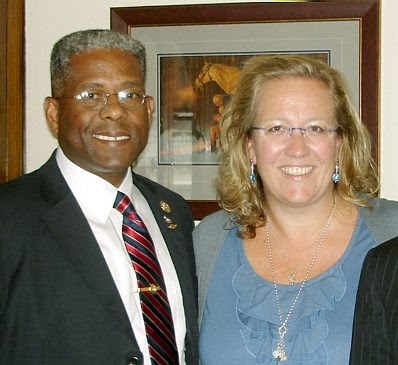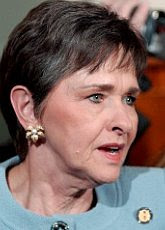 The following position paper on the independence of Flanders was sent to us by Gerolf Annemans of Vlaams Belang.
The following position paper on the independence of Flanders was sent to us by Gerolf Annemans of Vlaams Belang. Flemish independence Abstract of party position
Flemish independence Abstract of party positionVlaams Belang strives for the dissolution of the Belgian state. The division of the Scandinavian Union into Norway and Sweden (1905), the division of Czechoslovakia into the Czech Republic and Slovakia (1992) and the recent independence of Montenegro (2006) prove that it is possible to dissolve a state and become independent in a peaceful, democratic and internationally accepted way.
The right to self-determinationThe right to self-determination has been repeatedly and explicitly acknowledged, for example in the International Covenant on Economic, Social and Cultural Rights (1966), the International Covenant on Civil and Political Rights (1966), the Helsinki Final Act (1975) and in the final declaration of the World Conference on Human Rights in Vienna (1993). The right to self-determination is universal, on a moral and a judicial level.
Why independence?There are enormous cultural and political differences between Flemings and Walloons. Flanders and Wallonia are actually two completely different countries. Decent policy-making is impossible in Belgium: The Belgian governments are paralyzed by the ongoing disputes between Flemish and Walloon politicians, who disagree about almost everything. Security, justice, social and economic policy, immigration and asylum, tax law and foreign policy: There is no consensus on any of these issues. The Flemish solutions are flatly opposed to those of the Walloons. Flemish independence is a matter of principle for Vlaams Belang, but also an absolute necessity for an effective and efficient policy. Flanders already has a Flemish parliament with its own (limited) authority. This parliament could easily become the legitimate representation of the independent Flemish state.
Small but prosperousWhen Flanders and Wallonia become sovereign states, twelve countries in the European Union will still be smaller than Flanders , even six that will be smaller than Wallonia . With its (more than) six million inhabitants and its internationally oriented economy, Flanders will belong to the group of small, prosperous countries, such as Ireland (3,7 million inhabitants), Norway (4,4 million), Finland (5,2 million), Denmark (5,3 million), Switzerland (7,1 million), Austria (8,1 million) and Sweden (8,9 million). There are very strong economic arguments in favor of Flemish independence. For example, Flanders produces three-quarters of the Belgian gross domestic product (GDP). It also counts for more than 80% of Belgian exportations. When it comes to the gross domestic product per capita, Flanders does better than other countries such as Germany, Denmark, France, the Netherlands, Austria, Sweden, Ireland, Finland, the United Kingdom, the United States and Canada.
Flemish money in Flemish handsVlaams Belang wants to stop the compulsory and opaque flow of money from Flanders to Wallonia - at least 12,68 billion euros each year. This way, the Flemish people lose more than 7% of their Gross Domestic Product (GDP), which makes it probably the world’s biggest contribution to another community. Stopping the Flemish flow of money would force the Walloon government to take responsibility, and would give the Walloon economy an important boost, comparable to the great economic progress Slovakia made after the dissolution of Czechoslovakia. Our party is in favor of solidarity with other nations, but in a European context, in which the wealthier countries take measures in favor of the less wealthy. This solidarity should always be voluntary, transparent, negotiated and of course efficient and controlled.
Prominent people in favor of independenceIn economic circles, more and more people realize that it is time for Flemish independence. At the end of 2005 already, Flemish captains of industry wrote an extensive manifesto, in which they pleaded for the division of the Belgian state. Among these prominent Flemish people that spoke up for a Flemish state are Herman De Bode (top executive of consulting firm McKinsey), René De Feyter (former director of the “Vlaams Economisch Verbond,” a Flemish employers’ organization and lobbying group), Manu Ruys (former editor in chief of the Flemish newspaper “De Standaard”), Guido Naets (journalist and former spokesman of the European Parliament), Frans Crols (director of the leading business magazine “Trends”) and Remi Vermeiren (former top executive of KBC, the third largest bank holding company in Belgium). These people prove that the Belgian form of government holds back economic development and keeps us from securing our prosperity. The Belgian establishment has never managed to refute this well-founded manifesto.
After Belgium - The Orderly Split-Up SynopsisThis English translation of the recent (2010) Vlaams Belang book is neither a political nor a polemical monograph. The political background of the authors suggests the contrary, but from the start - since the first initiatives for the O2-colloquium of 30 January 2010 - the authors wanted to provide inspiration for the inevitable debate on the dissolution of the Belgian federacy. Of course, this debate will take a political course. At the moment, however, it is still in its early stages. However, there is one very specific political angle: our reply on arguments that the dissolution of the Belgian Union and the foundation of a Flemish state (as a member state of the European Union, of course) would lead to so-called ‘revolutionary situations’ or even ‘chaos’. In their book, the authors explain that there is an alternative after the Belgian model has completed collapsed, there is a ‘Plan B’: the Orderly Split-Up of Belgium.





 They didn’t even wait a fortnight after Obama revealed his plans to draw down troops in Afghanistan before the Taliban did a Mumbai-style attack on a hotel in Kabul which caters to Westerners.
They didn’t even wait a fortnight after Obama revealed his plans to draw down troops in Afghanistan before the Taliban did a Mumbai-style attack on a hotel in Kabul which caters to Westerners.
 One of our readers, an anthropologist of sorts, sent in this After Action Report on the experiential effects of his participation in the Friday prayers at a mosque in his city on the West Coast.
One of our readers, an anthropologist of sorts, sent in this After Action Report on the experiential effects of his participation in the Friday prayers at a mosque in his city on the West Coast.


